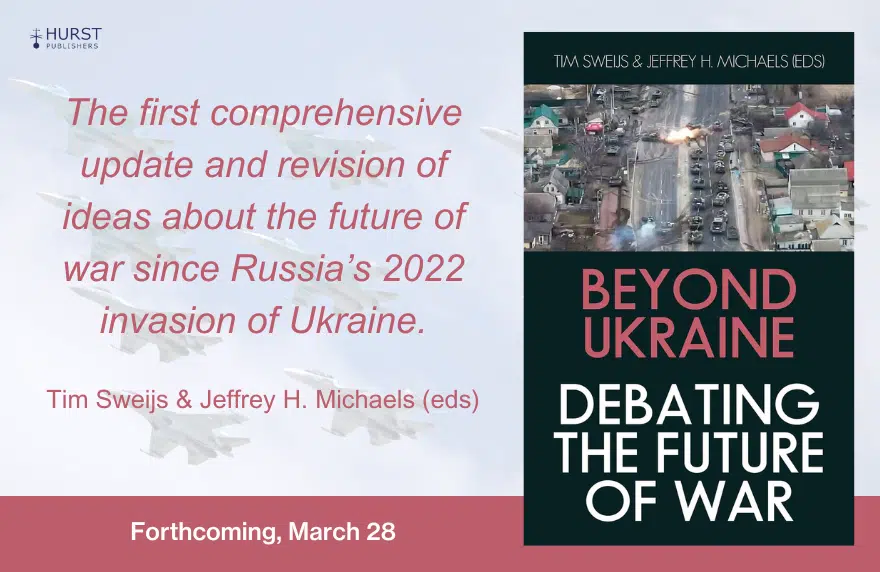Space security is a complex assemblage of societal risks and benefits that result from space-based capabilities and is currently in a period of transformation as innovative processes are rapidly changing the underlying assumptions about stability in the space domain. New space-based technologies are emerging at an accelerating rate, and both established and emerging states are actively and openly pursuing weapons to negate other states’ space capabilities. Many states have set up dedicated military space units in order to preemptively counter such threats. In addition, a number of major private companies with a transnational presence are also investing heavily in extraterrestrially-based technology.
The Oxford Handbook of Space Security focuses on the interaction between space technology and international and national security processes from an international relations (IR) theory perspective. Saadia M. Pekkanen and P.J. Blount have gathered a group of key scholars who bring a range of analytical and theoretical IR perspectives to assessing space security. The volume theorizes the development and governance of space security and analyzes the specific pressure points currently challenging that regime. Further, it builds an analytically-eclectic understanding of space security, infused with the theory and practice of IR and advances analysis of key states and regions as well as specific capabilities. Space security is currently in a period of great transition as new technologies are emerging and states openly pursue counterspace capabilities.
Bringing together scholarship from a group of leading experts, this volume explains how these contemporary changes will affect future security in, from, and through space.
HCSS director of research Tim Sweijs and strategic analyst Davis Ellison contributed the chapter “The Next Frontier: Strategic Theory for the Space Domain“:
At the dawn of the Second Space Age, the evolution of space as a warfighting domain is keeping brisk pace alongside its increasing economic and societal importance. A clear understanding of strategic dynamics in space is a necessary prerequisite to enhancing the stability and peaceful uses of space. This chapter proposes concepts that are central to developing a strategic theory for space. It first provides descriptions of both why space is important and why it is different and links these considerations to a rationale for new strategic theorizing. The chapter engages with previous thinking from other military domains, namely land, maritime, and airpower, to probe the literature on strategy and ascertain those most fundamental elements applicable to the space domain. It then offers three foundational concepts for a strategic theory for space: power, access, and command. Finally, it considers theory both in relation to orbital uses for space as well as in the emerging commercial and military uses of cislunar and deep space.
Applying lessons from international relations theory and practice and drawing from a range of social science subfields, the Handbook is a definitive work for scholars who study the topic of space security.
Featuring more than 40 chapters from renowned experts such as Stephen Buono, Aaron Bateman, Setsuko Aoki, Carl Graefe, Raymond Duvall, Wendy Whitman-Cobb, Pavel Luzin, Tai Ming Cheung, Yasuhito Fukushima, Xiaodan Wu, Forrest E. Morgan, Jessica West, Koji Tachibana, Scott Pace, Kevin Pollpeter, Florian Vidal, Rajeswari Pillai Rajagopalan, Šumit Ganguly, Xavier Pasco, Mark Hilborne, Tomas Hrozensky, Mathieu Bataille, Deganit Paikowsky, Samuel Oyewole, Olavo de O. Bittencourt Neto, Jairo Becerra, Prashanth Parameswaran, Su-Mi Lee, Hanbeom Jeong, Matthew Stubbs, Desislava Gancheva, Laura Grego, Larry F. Martinez, Michael Raska, Malcolm Davis, Brad Townsend, Guoyu Wang, Alanna Krowlikowski, Martin Elvis, Mariel Borowitz, Peter L. Hays, James J. Wirtz, Mohamed Amara, Sagee Geetha Sethu, Paul B. Larsen, John J. Klein, Nickolas J. Boensch, Nikola Schmidt, Natália Archinard, James Clay Moltz, Zhou Bo and Wang Guoyu, the volume:
- provides a comprehensive approach to understanding space security;
- pushes forward the theory of space security from a variety of international relations perspective;
- extends the analysis beyond the standard space actors to give a more comprehensive understanding of how a broad cross section of states understand the impact of space on their security;
- draws on the expertise of a set of scholars who bring a range of analytical and theoretical perspectives to bear on the empirical changes affecting space security;
The Oxford Handbook of Space Security is now available from Oxford University Press, Amazon, Barnes & Noble, WH Smith and other major book retailers.








